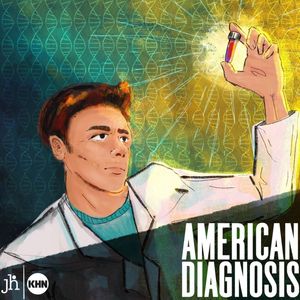
AMERICAN DIAGNOSIS with Dr. Céline Gounder
[email protected] (KFF Health News and JUST HUMAN PRODUCTIONS)
S4E10 / Stewardship Over Biodata Rebuilds Trust / Dakotah Lane & Krystal Tsosie
AUG 9, 202219 MIN

S4E10 / Stewardship Over Biodata Rebuilds Trust / Dakotah Lane & Krystal Tsosie
AUG 9, 202219 MIN
Description
Mending broken trust may be a first step for investigators who want to increase the participation of Native people in medical research. “There's such a history of extractive research in Indigenous communities, such that ‘research’ and ‘science’ are sometimes dirty words,” said Navajo geneticist and bioethicist Krystal Tsosie.Poor communication and a lack of transparency are among the missteps that have eroded the trust Indigenous communities have in medical research. And that mistrust has contributed to the underrepresentation of Native people in clinical trials. In 2018, Tsosie co-founded the Native BioData Consortium, a research institute led by Indigenous scientists. The consortium is working to improve health equity by actively engaging community members in the research process. When the group collects biological samples from Native tribes, they are stored on sovereign Native American land and made accessible only to researchers who are prioritizing Indigenous health needs. “The benefits are directly rolled back into the people and their communities without a profit to outside entities,” Tsosie said.Episode 10 explores the history of exploitation of Indigenous communities by outside researchers and some of the health consequences of being left out of medical trials.Click here for a transcript of the episode.Voices from the Episode: Dr. Dakotah Lane – Executive medical director of the Lummi Tribal Health ClinicKrystal Tsosie — Twitter – Co-founder and ethics and policy director for the Native BioData ConsortiumSeason 4 of “American Diagnosis” is a co-production of KHN and Just Human Productions.Our Editorial Advisory Board includes Jourdan Bennett-Begaye, Alastair Bitsóí, and Bryan Pollard.To hear all KHN podcasts, click here. Hosted by Simplecast, an AdsWizz company. See pcm.adswizz.com for information about our collection and use of personal data for advertising.